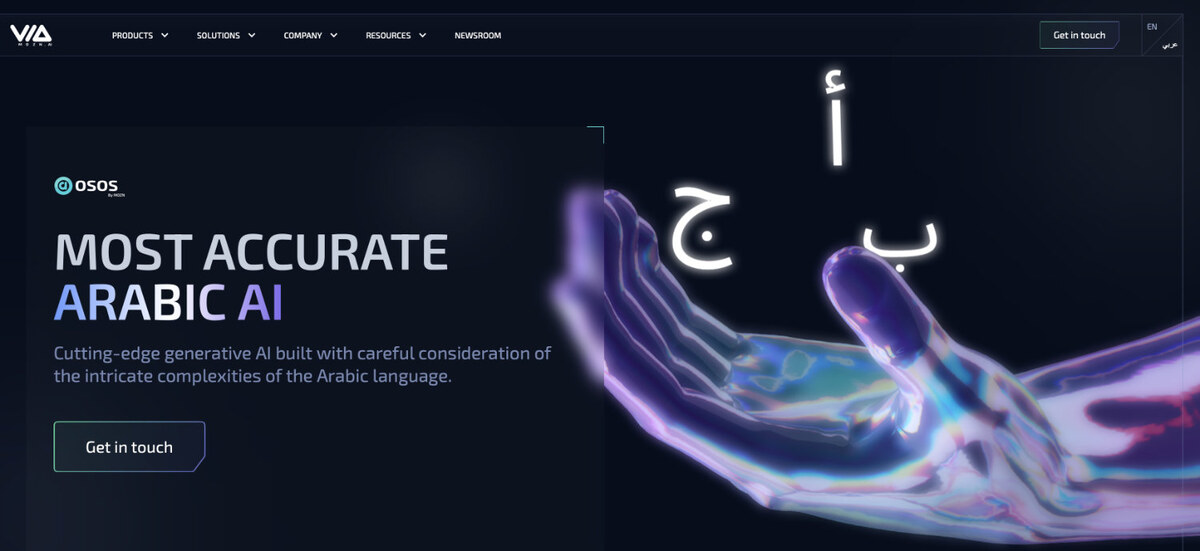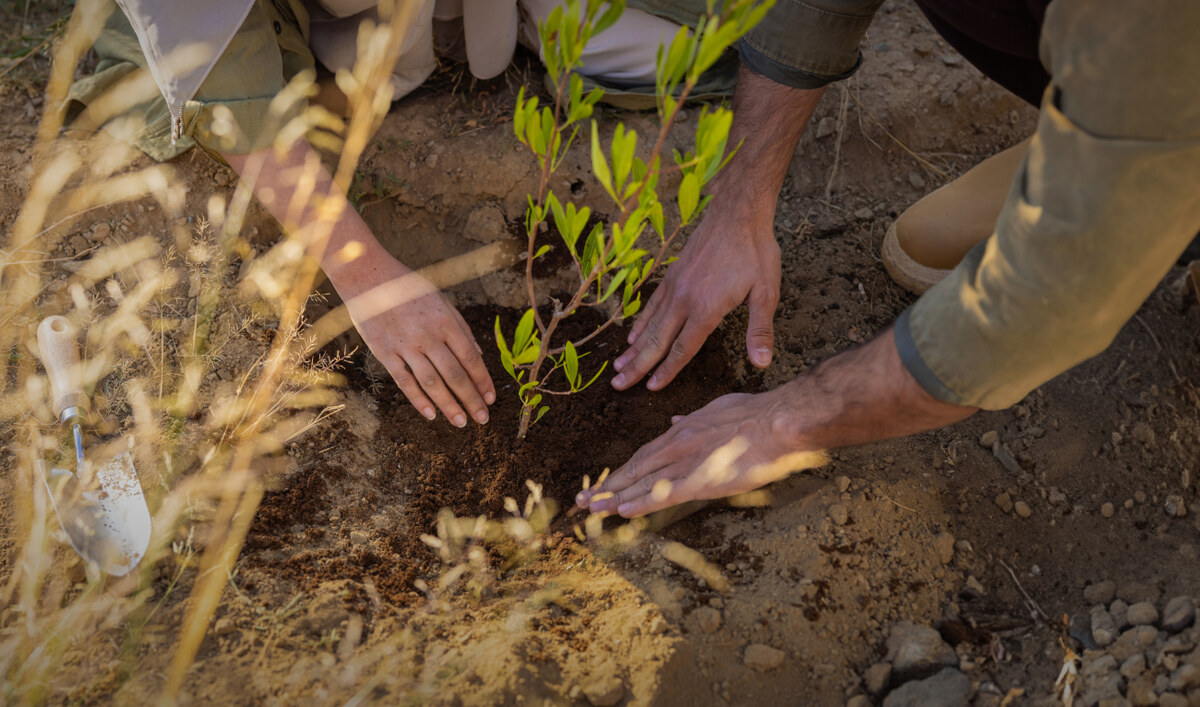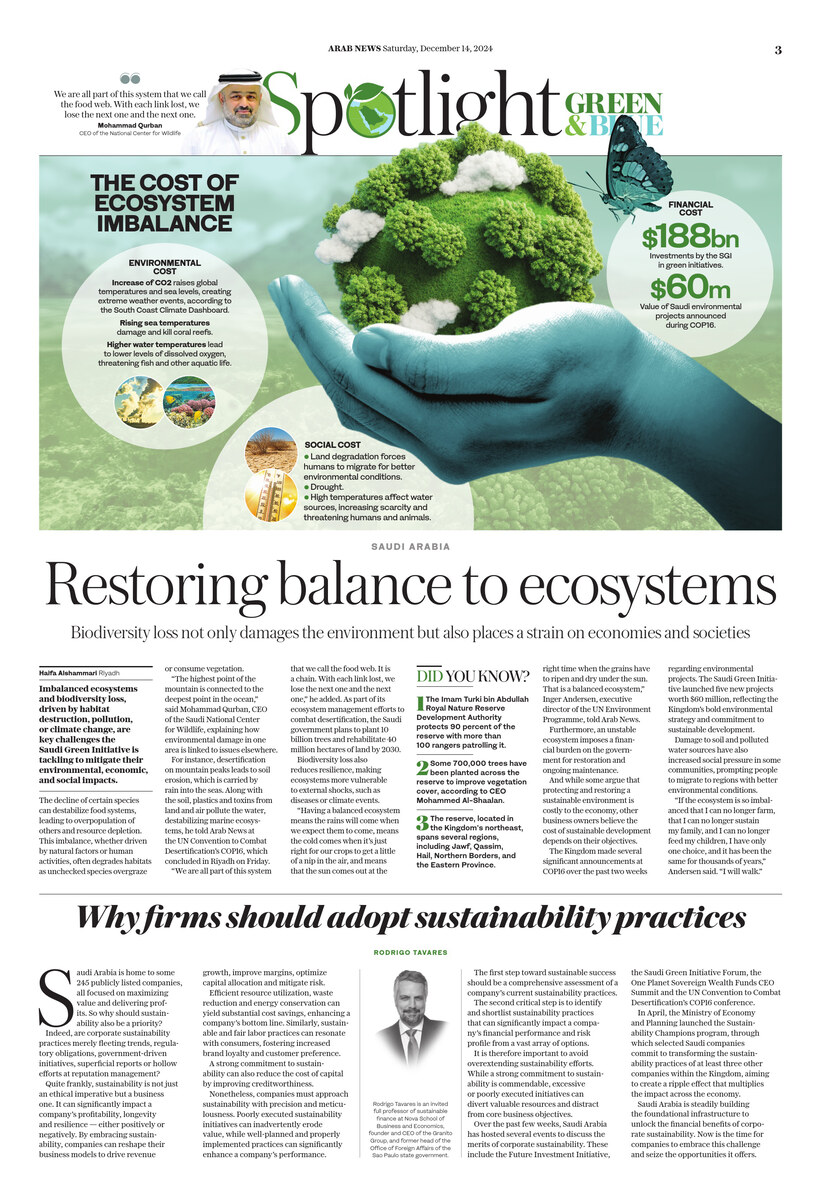RIYADH: The financial industry is undergoing a seismic transformation, with artificial intelligence and fintech reshaping everything from regulatory compliance and customer experience to counter-fraud measures.
Across the globe, banks are adopting generative AI and machine learning to drive innovation, reduce costs, and enhance security. Saudi Arabia is emerging as a key player, with local tech companies like Mozn spearheading change.
Speaking to Arab News, Mohammed Alhussein, Mozn’s founder and CEO, highlighted the “enormous improvements in how financial institutions offer their services to customers” over the last decade.
“There are more products that reach more people. Those products are better, faster, and are being offered online,” he said. At the same time, however, the growth of online banking services has also “opened the door for fraudsters.”

Banks are rapidly integrating AI for a host of benefits, including predictive analytics, automated compliance, and fraud detection.
A key driver is the need for real-time, data-driven insights. The ability of AI to analyze vast amounts of data quickly is transforming how banks assess risk, manage assets, and engage with customers.
For instance, AI has enabled high-speed trading and personalized customer services by leveraging machine learning to identify individual preferences and optimize service offerings.

Shutterstock illustration image
AI’s predictive capabilities also allow for better risk assessment, making it easier for banks to anticipate and mitigate potential financial risks.
Generative AI is also playing a significant role in areas like customer service and product development.
In the banking sector, it powers “intelligent banking” systems that enhance customer experience by summarizing customer conversations and improving support agent responses.

It also assists advisers in retrieving essential product information quickly, thereby reducing the response time and elevating service quality for clients.
Furthermore, AI-driven tools are automating compliance processes, making it easier for banks to adhere to evolving regulatory standards, potentially saving financial institutions from costly penalties and reputational damage.
DID YOUKNOW?
• Saudi fintech leader Mozn has driven financial AI transformation through its platforms FOCAL and OSOS.
• Generative AI in banking is enabling personalized services, predictive analytics, and faster customer support.
• Banks leverage AI-driven fraud detection systems, identifying transactional anomalies in real time.
• Mozn was recently listed among the Top 250 Fintech Companies globally by CNBC and Statista.
With online banking services expanding, banks face an increased risk of fraud. AI is essential in developing sophisticated fraud detection systems that can identify anomalies in real time.
For example, fintech platforms now monitor large volumes of transaction data to identify potentially fraudulent activity instantaneously, helping mitigate risks before they escalate.
“Everything is digital. This means that financial institutions must now make identity-related decisions in real-time,” said Alhussein. “AI is really good at identifying anomalous behavior analysis patterns and doing it really quickly.”

Mozn founder and CEO Mohammed Alhussein highlighted the “enormous improvements in how financial institutions offer their services to customers” over the last decade. (AN photo/by Abdulrahman bin Shalhoub)
Advanced AI-driven compliance systems are also evolving. These systems are designed to constantly adapt to regulatory changes and identify emerging threats.
The automation of regulatory compliance processes allows banks to operate more efficiently, focusing on growth without compromising security.
Such systems are critical in Saudi Arabia, where financial institutions are expanding their services rapidly to keep up with the country’s Vision 2030 goals of a diversified, innovation-driven economy.
Mozn’s flagship compliance platform, FOCAL, is a prime example of AI in action, tailored to combat financial fraud through a unique blend of real-time identity verification and anomaly detection.

Mozn announced its FOCAL Anti-Fraud product at Saudi Arabia's LEAP 2023 tech conference at Riyadh Front Expo Center. (Supplied)
FOCAL actively screens and analyzes both customer and transactional data, immediately flagging suspicious activity that may indicate fraud or compliance breaches.
“We work with the financial sector specifically on one challenge, which is navigating and protecting against the risks of financial fraud,” said Alhussein.
“FOCAL is an AI-powered risk and compliance platform that financial institutions use to help protect their assets and their customers’ assets.”
Mozn has also developed OSOS, a generative AI platform specifically designed for Arabic language users.

MOZN's generative AI platform Osos is specifically designed for Arabic language users. (Supplied)
As Arabic content on the web grows, OSOS provides a culturally relevant solution, handling Arabic linguistic nuances and serving enterprises across the region.
Equipped with anti-hallucination features, OSOS minimizes bias and enhances accuracy by training on a diverse, balanced dataset. This feature is crucial as it ensures outputs are relevant and reliable, which is especially important for business and regulatory contexts.
“In developing OSOS, two of the main cornerstones of the values we are adding are minimizing both bias and hallucinations,” said Alhussein.
“OSOS has performed exceptionally well in different benchmarks that we’ve tested, and we’re very optimistic about where this is going.”
Mozn’s advancements have not gone unnoticed. The company was recently listed among the Top 250 Fintech Companies globally by CNBC and Statista — a testament to its influence in the fintech industry.
Opinion
This section contains relevant reference points, placed in (Opinion field)
This achievement underscores the company’s success not only in technology but also in meeting the specific needs of financial institutions in the region.
By achieving a 350 percent increase in customer acquisition since 2022, Mozn exemplifies the upward trajectory of Saudi fintech.

Mozn office in Riyadh. (AN photo/by Abdulrahman bin Shalhoub)
Its success reflects a broader regional trend of fintech growth, as countries in the Middle East and North Africa increasingly embrace digital transformation in banking, and advances in AI across all sectors and industries.
“The future of AI in Saudi Arabia is extremely exciting,” said Alhussein.
“We’re incredibly fortunate to be a company born in Saudi Arabia and to witness the amazing transformation happening in the country, specifically regarding technology and artificial intelligence.”









































